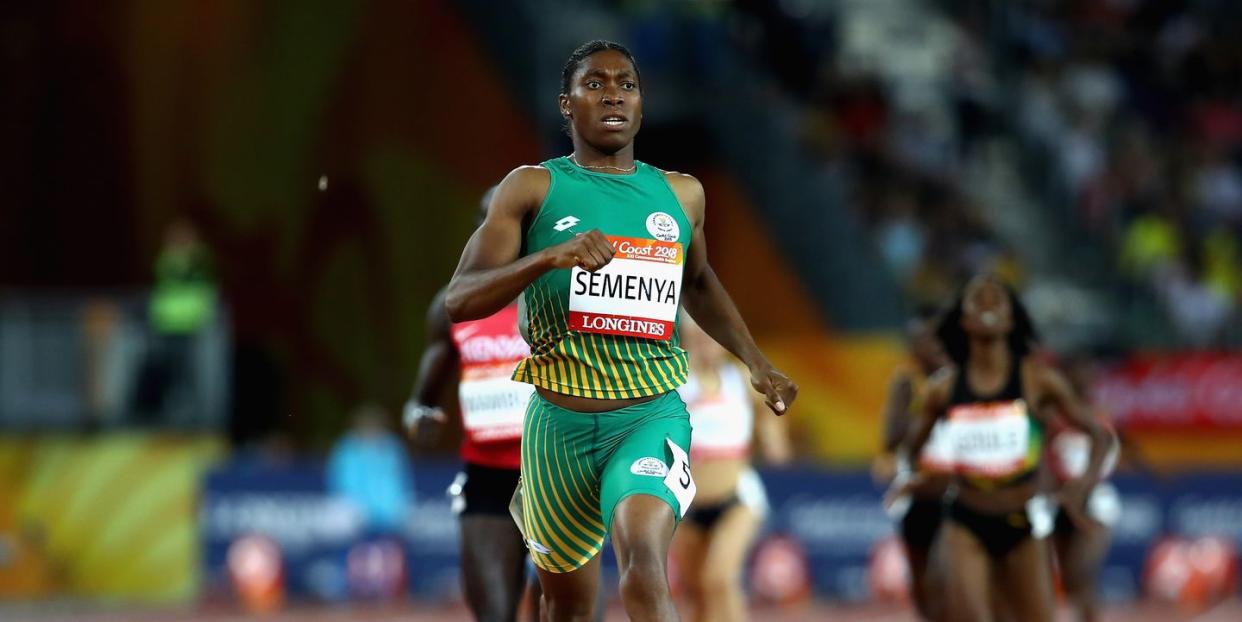Caster Semenya's lawyers want answers for 'misleading' study

World Athletics has released a report admitting that findings that banned Caster Semenya and several other athletes from taking part in the Tokyo Olympics are ‘misleading’. It comes just nine days after the closing day of the Olympic Games.
The 2017 study banned Semenya – who holds two 800m Olympic gold medals – from taking part under rules prohibiting athletes with Differences of Sexual Development (DSD) from competing at distances between 400m and the mile, unless they take hormone-reducing drugs.
This was based on evidence that found females with high testosterone levels had a competitive advantage over those with low levels.
‘Exploratory’ findings
However, in the new report, scientists Stephane Bermon and Pierre-Yves Garnier of World Athletics said the findings published in the paper are not ‘confirmatory’ or evidence for a causal relationship. They said:
‘To be explicit, there is no confirmatory evidence for causality in the observed relationships reported. We acknowledge that our 2017 study was exploratory.’
They added: ‘With this in mind, we recognise that statements in the paper could have been misleading by implying a causal inference.
‘Specifically, “Female athletes with high fT [testosterone] levels have a significant competitive advantage over those with low fT in 400m, 400m hurdles, 800m, hammer throw, and pole vault.”
‘This statement should be amended to: “High fT levels in female athletes were associated with higher athletic performance over those with low fT in 400m, 400m hurdles, 800m, hammer throw, and pole vault.”’
Caster Semenya legal action
Prior the Tokyo Olympics, Semenya appealed to Switzerland's Federal Supreme Court against the restriction and is currently awaiting a hearing at the European Court of Human Rights.
Now, Semenya’s lawyers are questioning why World Athletics has waited until after the Games before it released the report.
In a statement to Telegraph Sport, Semenya’s lawyer Gregory Nott, of Norton Rose Fulbright, said:
‘World Athletics have recently given notice of their wish to intervene in the European Court of Human Rights proceedings and we would hope that they will now support setting aside the regulations.
‘It is more than surprising that World Athletics did not reveal this evidence before the recent Tokyo Olympics and allow Caster to defend her 800m title.’
Contentious issue
Semenya isn’t the only athlete that has been banned from competing in events at the Tokyo Olympics under the reguling. Two 18-year-old Namibian runners, Christine Mboma and Beatrice Masilingi, were also not allowed to compete in the 400m due to high testosterone levels.
This sparked controversy, however, when Mboma took home silver in the 200m, after breaking the world under-20 record twice on the way to the 200m final.
World Athletics president Seb Coe said Mboma’s performance vindicated the ruling about the 400m.
However, given the new information that has come to light, it’s likely that many campaigners will argue for these rules to be scrapped immediately.
You Might Also Like


